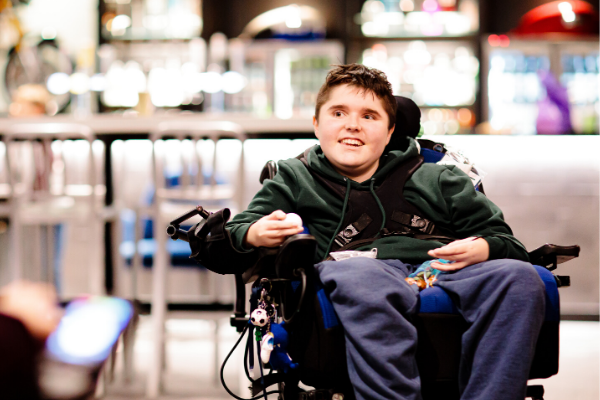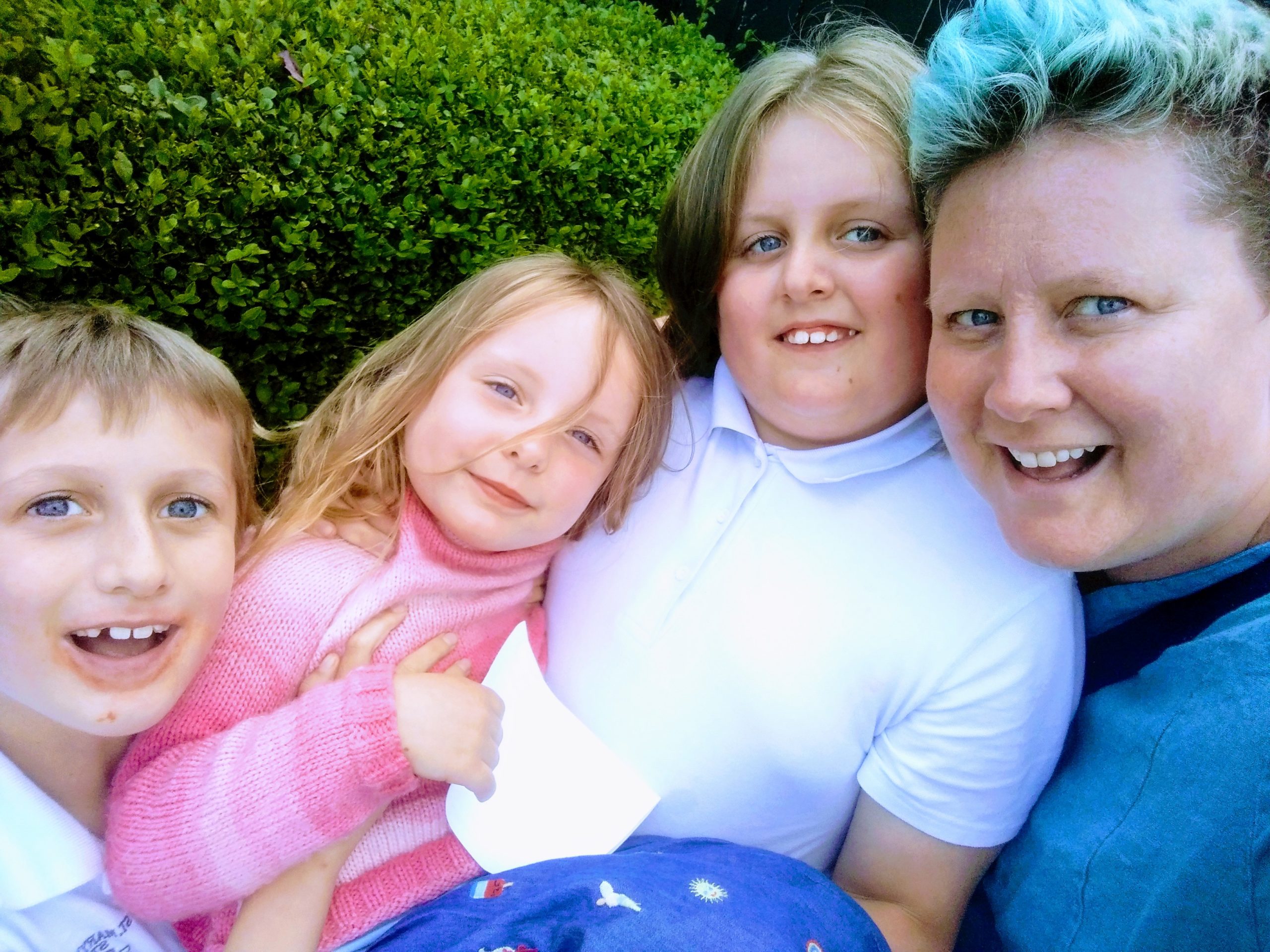Action Duchenne aims to support our young people transitioning to adulthood by providing professional-led residential and online skills training.
The first steps:
Building on the success of our National Lottery-funded Takin’ Charge project. We have worked in partnership with Demelza Children’s Hospice to gain a clearer understanding of the training and support our young people want and need and to find out what they are trying to achieve.
This will be the first step towards developing targeted support programmes to help everybody in the future.
We have worked with the leading neuromuscular centers in the UK who try to provide training in “life skills” for young adults living with Duchenne. However, we have been told that a clinical setting and a doctor/patient relationship is not necessarily the best way to achieve this training.
We have also reached out to clinics and hospices to find out exactly what support they are offering and how effective it is to bring about a joined up, all encompassing support system.
Throughout the project we have seen how it can impact on the lives of our young people and also on clinical centres. We have heard from families how difficult it is to go through transition in a health care setting, as well as young people who are moving into adulthood.

Our findings show that:
- When young people transition to adulthood, most are supported in a clinical setting like an advisor or a consultant at a neuromuscular clinic. If the young person is at home a social worker would mainly provide this support more, but both more likely be a face-to-face session. If this was not possible then telephone, video calls and online workshops were the easiest way to access this support.
- While most young people surveyed had their own specific hobbies and interests that they undertook regularly, the most difficult part of achieving these goals was the lack of support they received followed closely by mental stress, anxiety and lack of information. This can really affect a young person’s mental health, making them feel isolated and make it difficult to gain their independence as they transition to adulthood.
- In our work with young people and adults living with Duchenne, they shared with us their aspirations, what drives them and where they want to go. There were little or no mentions of mobility or health at all, with answers like; to be a teacher, to get married and to be in a relationship to name a few. We can see that young people and adults view ‘transition’ as being more clinical, with ‘aspirations’ being separate. Due to this we feel transition training should not take place in the clinic.
- One of the main things that young people find that holds them back is support yet again. We have gained a better understanding of how we could support our young people through our survey that young people’s ideal transition session should be: a face-to-face session, run by adults living with Duchenne. Either on a day or as residential.

Next steps:
Alongside other Duchenne charities and partner organisations, we have built on our expertise in support and education provision. We are already working with young adults to identify their precise training needs. In this project we will use that information to provide skills training to young people living with Duchenne to enable them to seize control of their lives.
Fit with supporting families priorities
This transitioning to adulthood project brings together our young people and enables them to fulfill their potential to achieve their goals and aspirations going into adulthood.
As young people feel more isolated and have difficulties gaining independence we feel our training sessions will provide them with essential social interaction with their fellow peers.
Having role models living with Duchenne being on hand during our sessions so the young people taking part can learn from them and have the support that they otherwise wouldn’t have.
This next phase of the project aims to empower adults living with Duchenne, so they can seize control of their lives. We want to remove the limits imposed by the challenges of transition by providing practical support and life skills and chance to take part in activities that are not usually available to this group and at the same time would provide families with respite from their caring responsibilities training.
We are establishing peer-to-peer support groups to help to address issues such as the feelings of isolation and anxiety that many young people living Duchenne experience.
With the right encouragement, tools and positivity, our supporting young people transitioning to adulthood will create a bright future for themselves and be confident to live that future to their full potential.
Bespoke support
Action Duchenne is committed to bringing hundreds of young people living with Duchenne, clinicians, researchers and other Duchenne partner organisations, together.
We have hosted focus groups, closed steering group meetings and question and answer sessions. By supporting the project you will be working with the longest serving Duchenne only charity in the UK, that delivers innovation, change and the highest ethical standards.
Financial support
Action Duchenne heavily subsidise places for young people at our supporting families programme, to enable as many as possible to receive the much-needed support.
We would be delighted if you assisted Action Duchenne in further enabling as many of our young people to attend the training programme as possible, and minimise the cost to our charity of putting on this much-needed support programme.
We estimate the total cost of offering 16 places to young people living with Duchenne will be £29,864. Although we see this as a long-term project, we would be delighted if you could consider supporting the delivery of the support for the first year of the pilot project with a grant of £29,864.
We would, of course, welcome the opportunity to discuss funding of future years. With your support we can continue this life-changing project, empowering our young people to live their very best life, their way.
We have a range of events for you to get involved in from runs, to swims, treks and for the more adventurous skydives and abseils. Whatever you would like to do, however you would like to do it, our dedicated fundraising and support team will be on hand to support you every step of the way.
Nominating Action Duchenne as your organisation’s charity partner or Charity of the Year is a fantastic way to support our work and make a real difference to people living with Duchenne muscular dystrophy.



 Behind the scenes at Action Duchenne’s Santa’s Grotto
Behind the scenes at Action Duchenne’s Santa’s Grotto
